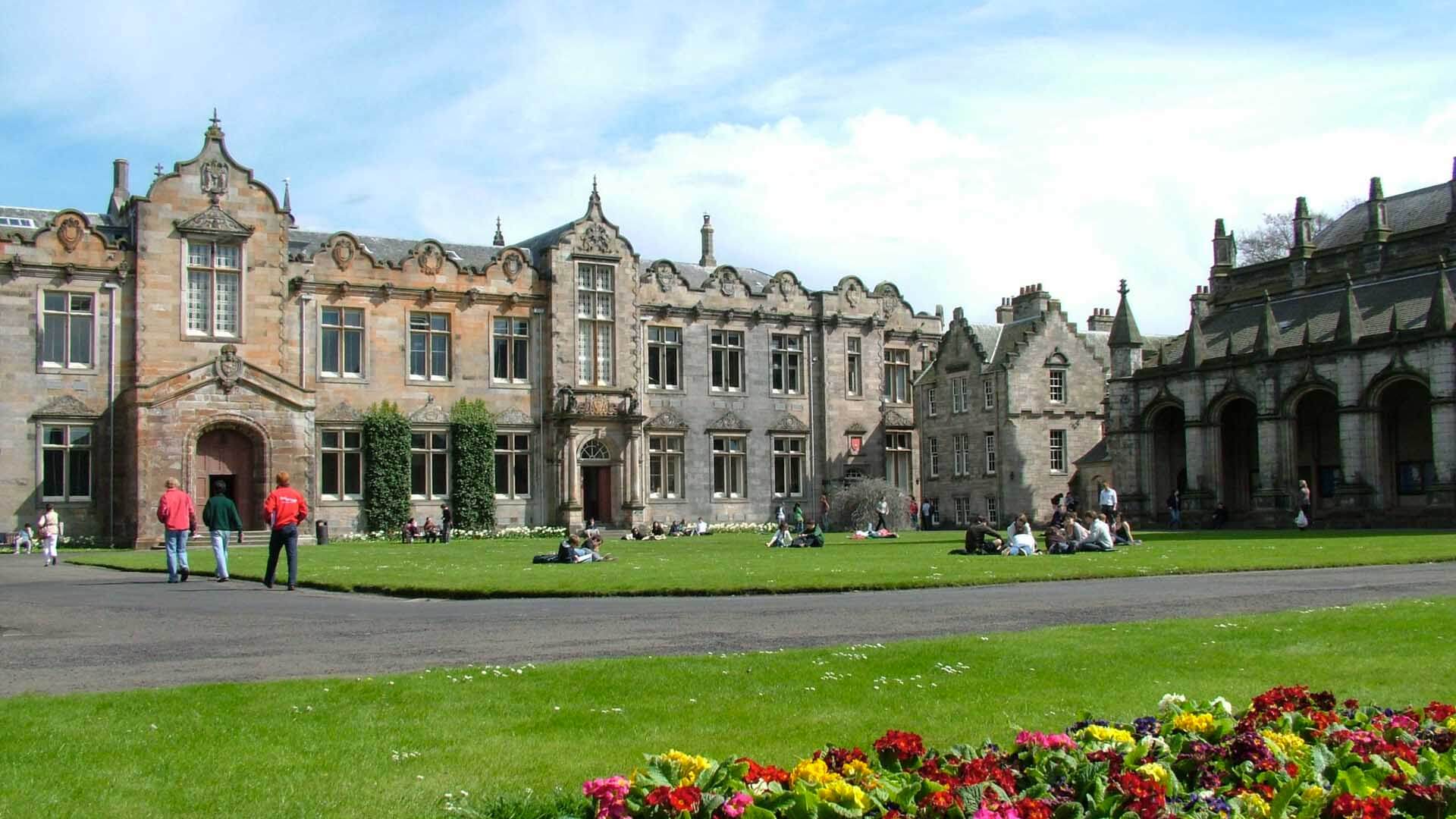Alumni network at University of St Andrews celebrates ethnic and cultural diversity
The University of St Andrews has launched a pioneering alumni network to celebrate the ethnic and cultural diversity of its alumni around the world.
The Kaleidoscope Alumni Network (KAN) aims to create a greater sense of belonging and a fairer and more inclusive St Andrews community for alumni, as well as for staff, students and their families.
KAN will highlight the wide range of ethnic and cultural experiences and expertise among alumni and celebrate their achievements, providing encouragement and inspiration for others. It will also promote discussion and connections among the University’s diverse alumni, staff and student communities, to inspire and effect change in society by leading by example.
Diversity is a pillar in the University Strategy 2022-2027 in recognition of its critical importance to the success and wellbeing of staff, students and alumni as well as the wider University community of families, donors and friends.
The network was named after the kaleidoscope due to the ability of its lens to joyfully create and change patterns. It is symbolic of how the diversity of our alumni allows us to perceive situations, using our rich cultural and lived experiences, from a multitude of perspectives, making society fairer for everyone.
Robert Fleming, Director of Development, said: “Alumni from diverse ethnic communities have made a significant contribution to our society but are underrepresented. The aim of the Kaleidoscope Network is to recognise and celebrate this contribution and thereby encourage alumni – and future generations of St Andrews alumni – to stay connected to the University and to each other. We recently welcomed Catherine Dunford to our team. As Alumni Relations and Black, Asian and Minority Ethnic (BAME) Engagement Coordinator, Catherine’s role is to develop and implement initiatives connecting with alumni and working with students and colleagues across the University. The Kaleidoscope Alumni Network is a brilliant new programme and we are very excited to launch it as part of the wider commitment to diversity at St Andrews.”
Catherine said: “St Andrews alumni are successful thought leaders, changemakers and global citizens. The network is already engaging with alumni and they are connecting with and shaping our network. We are intentionally growing a community that is reflective of the diversity of our alumni and that makes space for a variety of bold discussions on topics that matter to us all.”
The Network’s official launch, held on 28 November at the University’s Laidlaw Music Centre, began with a panel discussion on the powers and pitfalls of language in discussing diversity. On the panel were Dr Gurnam Singh, Visiting Fellow in Race and Education at the University of the Arts in London; Dr Akira O’Connor, Race Equality Charter Chair at St Andrews; Wei Lin, Assistant Director of Admissions at St Andrews; and Divine Mwawasi, President of the African Caribbean Society and the Racial Equality Coordinator of the Rector’s Committee. The discussion was chaired by Dr Rebekah Widdowfield, Vice-Principal (People and Diversity) at the University and the institutional Athena Swan Chair.
Rebekah introduced the panel discussion with the warning: “We underestimate the power of language at our peril” and quoted the novelist Angela Carter who said: “Language is power, life and the instrument of culture, the instrument of domination and liberation”. The panel had a wide-ranging discussion covering the connection between language and identity, language as both a source of solidarity and a source of othering, and how we can harness the power of language to help identify and address discrimination while not losing sight of individual experiences, our multiple identities and shared humanity. Following the discussion, Rebekah thanked the panel for their openness in sharing their knowledge and experiences in the discussion of a topic that impacts us all as individuals, as well as being an academic and a conceptual debate.
The morning session concluded with Claudia Lubao (Chemical) in conversation with composer and Honorary Professor of Music and Theatre Matthew Rooke (MA 1986), and with a performance by Claudia. Claudia is an award-winning Tanzanian musician who is in St Andrews pursuing a PhD in Music and Earth Sciences, investigating how Tanzanian popular music can be used to communicate socio-cultural and scientific issues. Claudia’s academic and musical career demonstrate, through lived experience, the connection between the representation that today’s students are asking for and the celebration of diversity that alumni wholeheartedly support.
In the afternoon session, Catherine introduced activist researcher, writer and educator Dr Gurnam Singh to deliver his talk using words he uses to describe himself: “The Earth is my country, humanity is my race and love is my faith”. Internationally recognised as one of the leading thinkers on the issue of ‘race’, racism and higher education, his talk put forward arguments for an inclusive higher education system that nurtures wisdom and ethical reflexivity.
The launch events ended with an early evening talk with alumna Jocelyn Pridgen (1982-1983), who gave an overview of how her post-University experiences have influenced her as an advocate preparing immigration cases in the US.

